Raffaele Mautone, Founder and CEO of AaDya Security, Joins The Herd Has Spoken
Cybersecurity CEO -- Raffaele Mautone
Raffaele Mautone is Founder and CEO of Detroit-based cybersecurity company, AaDya Security. He is an expert in the security space, and has had an extensive career with leading cybersecurity companies before founding taking the plunge to found AaDya. Raffaele is a passionate and supportive leader who believes in building people up, especially those who work on his teams.
Enjoy the conversation between Raffaele and Brad
Brad
Raphael, great to see you. And thanks for joining us here on the heard has spoken. I'd love to just kind of dive right in here. So you're obviously a very experienced professional, you've been down the path as a as a CIO, your analysis startup founder, nearly $3 million in funding. And so you clearly have a lot of clout, so to speak, in the in the community, particularly in the security community. But what I've noticed with you, is that you seem to have a habit of looking for ways that you can build up other people. And this seems to be a recurring theme in terms of your communications. And I'd love to hear, where does that come from?
Raffaele
Right. Thanks for having me. I'm excited to be here. It is something that I experienced from leaders that I respected. And regardless, if I would mess up, or I didn't have the right skill sets, when I started my career, there was always these great leaders throughout my different phases in my career, that took the same approach. And so to have that feeling of wow, like, that leaders trying to help me is what I always wanted. And I always gravitated towards those types of leaders that did that, and found that I was able to grow and be prosperous, especially in the cybersecurity community, which unfortunately, has a mixed back those different types of leaders. But it, it really is what I one of the three things I wanted to make sure we did today. And no, we didn't get it right. The first year, as in any startup, I think, you know, there are different decisions, you have to make different experiences that you have to bring forward. But also, at times, tough decisions that you have to make as you're growing a company. You might even get down to picking maybe some of the wrong team members, or they don't want to be part of the journey. But where I feel like we're at now, we definitely have that core team that is going to grow AaDya and take us to the global level.
Brad
Yeah, so I love that. I love that. That sentiment in terms of you being able to learn from other leaders that you've worked with. But I want to push back in you a little bit. And here's here's why. I have noticed that you have tried to lift up a lot of people even outside of your company, right. So frankly, you've been a huge fan of MuskOx, even though you're not connected to to the company, aside from being an advocate of small businesses and medium sized businesses in Detroit and nationally, and then overtime, liking the clothes, which is great. And this isn't about the MuskOx clothes. But I share that to say you're advocating for people who you unpaper don't have any vested interest in this is not something that Raphael is doing just for his team. This is something that you're doing across the board, which makes me think, Hey, is this something that comes from growing up during childhood? Were there people that were maybe influential for you? before you started, you know, your illustrious career at Dell? I mean, where do you think this comes from outside of the importance of leading by supporting and building up people on your team?
Raffaele
I didn't have a great childhood. And I didn't have the opportunities that I think most people may or may not take for granted. And so when if you look at what's important to me, it is giving back to the community. But you know, even right now, we're trying to ensure that we help local food banks, I've stood in line for food. I've been one of those kids that had to get part of the lunch program, all great things. I just see the world in a little bit of a different way. And always go back to that nine year old sitting there going, God if you can help someone, regardless if it's buying something, or connecting them, helping them find a job. It's not it. It used to be harder, but it's not that hard right now you can click a button and do it and it makes such a big impact. And then I learned a long time ago, probably with my first sales team. I've even had people reach out to me today going I still remember you supporting me and I think about that every day. And that's what I want to do now as leader in their career path. So I quit it too. Sometimes I don't even realize I'm doing it. It's just, I want to do it. And on this next chapter of this journey, I'm just trying to consciously make sure that that glow that I got from either my career or even this last role at duo that I can pay it forward. And that's important to me. It's not about money, maybe it's my age, maybe it's, there's all these other things, but I get more enjoyment out of helping people now than I think I did even when I was younger. And so it just, it just really.And that's what I hope that my children also get as they grow up, because they do have that opportunity now that I did.
Brad
What do you think your nine year old self would say about what you're doing today?
Raffaele
He wouldn't believe that I'm doing this. I honestly feel that he wouldn't be in shock, because there was so much doubt in that kid, especially between the ages of nine, and 16. Because there were so many things, like every other teenager that goes out there. But to grow up in the 80s and 90s. And not have what everyone else had but also layer in realizing that I was gay was another whole big component of that. And during those times, it was not okay. I'm thankful for all the work that LGBT community has done to get us here. And used to even be co chair of the Human Rights Campaign when I was in Texas. So I know how important it is to also just put yourself out there even if others don't like it.
Brad
I think that's I think that's powerful stuff. So when you when you talk about the doubt that you had as a child, and now you're clearly a very confident leader, and you've gotten to a spot where you unequivocally believe in yourself, because at our age for you to start a new business, there's no doubt that you know, the perils, you know, the challenges, and you still made that, that leap forward with a Aadya. So how did you transition from being filled with that doubt, to being filled with self confidence enough that you went out and started your own security company, and we'll get into this, but not just your own security company, but one that's targeting an unusual segment for security businesses, which is going after the small and medium businesses? So you're, you're clearly extremely secure and confident man at this point. So how how did that happen along the journey where you got to this point.
Raffaele
I didn't want to interrupt you. But I still doubt myself 100 times a day. So by no means do I want to put it out there for the other founders or listeners to think that I'm not full of doubt, I think you have to be as a founder. I think what I learned is one of my core items that I love to do is to fix things. And that is where it led to AaDaya. And yes, there were some levels of confidence in the fact that I knew that I could bring in the experts that were my leaders in past lives and have them.Challenge me on whether or not this was the right thing to do. As well as uplift me again, in a way that we could be successful. So I do think that you have to find as a founder, what is it that you really want to do? And you're passionate about, but also don't be afraid to surround yourself with people that will not always say yes, and I have many of them around me going. Don't do that. Yes, this is a good idea. But they're all through that lens of trying to help versus not enable, which is what you need in your first two years as a founder and a startup. But I am very doubtful, I think any, you know, I always make lists. I love checking things off my list. So there comes that operation side of me. I think that is important for founders. But I love fixing things and that leads into where you want to go with Aadya because there's a lot of fixing that needs to be done. When you look at small and medium sized customers, regardless of what you're selling or what services you're trying to provide them. We've put this lens on top of them that is very dated and doesn't work in this new world.
Brad
Okay, so let's talk about AaDya little bit. And maybe the first place to start is AaDya. Is that I work a day a week or what where does the name come from?
Raffaele
Well, I worked for three cybersecurity companies where the names were difficult. And if you had a difficult name, it became tribal knowledge as you explain to customers and partners, how to pronounce that name. So I already knew going into AaDya, I wanted a name that was difficult. So both my daughter's first names start with an A, which are the two A's at the beginning. And then the capital D is intentional, because I knew I wanted to be headquartered and Detroit. So when I had my idea on a napkin, I literally wrote down a capital a lowercase a capital D, and thought, Okay, time to go Google and see what names I could find out there. So it was intentional. And if you look at the origination of the name, it's in Latin America and the Middle East. It's called it's pronounced audio. And what I wanted to do goes back to what I said earlier, I wanted it though to be difficult to say, and have some meaning to it, which is why my daughter and Detroit are part of the names. So playing around with the name and moving around different initials, it was I knew I wanted to say a data. But if you take the A and the y and switches around, it looks like a spawn name and which doesn't work in cybersecurity, you have to have that hacker kind of name that does, it looks high tech, but isn't. So inverted, the y and the a and then we just intentionally say you will pronounce this a day. And as people hear the story about how the two A's are my daughter's names, they can relate. And then they get very excited as we begin to go across the United States and global that the D is capitalized because it's Detroit, because Detroit has a very much a history of being a city that has been innovative. And in the last five to six years, we have everyone around the globe rooting for us. And there they are seeing what we all see that have been down there for the last, I think you've been there longer than I have. But, you know, seven to 10 years that it is an amazing city. And if you're going to have a startup or build your company, it's definitely a place you should look at because the people there are amazing. And we're all helping each other in any way that we can.
Brad
Yeah, I love being in Detroit, because it's like we yes, we all recognize that the number one thing we can do is to sort of have our own successful businesses. That's That's true. But everyone is excited about your success, because we all are part of this greater cause in terms of being able to help help lift up one of the great American American cities. And so yeah, I think it's, I think it's a ton of fun, and it's great to be able to see to pause and see all the success. But you know, then quickly get back to work, right? That's just the way it works. You You mentioned a word a moment ago that I want to go back to you mentioned intentional. So in this case, you were talking about the name of your company. But you're also very intentional, being able to check boxes off of the list. And I want to understand a little bit more about how that intentionality, that vision, that purpose, comes together with a startup company which is inherently messy, and uncertain. And one of my favorite metaphors for for a startup journey is where you're, you can see the first step, but you can't see the top of the staircase. It's because it's so foggy. So as someone who you know, clearly gravitates towards being able to have that clarity and that intentionality. How do you manage that, with the inherent murkiness of creating a new business from scratch?
Raffaele
I do think my age played into the fact that I knew all the at least the starting components of starting a company that I will give you there was still a lot of doubt God helped me the day I had to put the payroll system in myself you know, I start missing all my old finance team members and my HR team members and want to give them hugs the next time we can all see each other is because now I understand but I do think that if you if you hire the right people, and you're okay with them, you know, I, my first job was with Adele and Michael Dell's first book says hire people that are smarter than you and don't be afraid of it. That is what I wanted to do. And I had done that successfully at past companies where, yeah, maybe I had a title of VP or director or even CIO, but you have to surround yourself with people that are much smarter than you and their areas of expertise. And the way you compliment that is to you know, really guide them on what you want culturally or how they build their team. That is really where, you know that first year was about the AaDya. It was messy. I it was not fun. We had many different personalities trying to work together, we're trying, like you said, build, code and software from the ground up. We, you know, none of us could have foreseen a pandemic, actually. And, you know, if you go back to all the things that could have gone, you know, in our first year, or a year and a half pandemic was not on my list of things that I thought might happen, like everyone else, shocking. But it really came down to finding those right team members, and then saying, Okay, listen, here are the three things we want to do. I think a lot of companies and even founders make too long of a list of goals or KPIs. And you're never going to get to him, I used to drive me nuts at past companies where we would spend two to three days at an off site and come out with 150 things in your life, but the top three are the only ones that are going to get done this year, let's just not waste their time. And keep checking off the list. And maybe that's short sighted on my part. But I think that no matter how we grow, have three to five things that people can relate to. And one of the things is community and, and how we can have a purpose of giving back to Detroit, but also globally, is core at a data. And that's why we're we do our giving back program for food banks where we donate $1 from every order to the customers state that they're in. So even they get to pick what state we're going to donate in which again, carries that paying it forward or purpose that we all want and thrive as we continue to live in this new world. So and there's no right or wrong recipe, you know, many founders in Detroit that I enjoy talking to, I think the thing to remember is you're not alone, and that many other people have done or felt what you're going through. And that is a new thing for me. I always think, because I used to be in roles that had an org above me, well, this is unique to me, because I'm in this role. And I just need to learn through it. I think as a founder, you really need to surround yourself with people that are ahead of you, regardless of their age, or whatever. And listen to them and what they've gone through to get to here, 345 and six, that's how you complete that staircase. It's not about the product. It may not even be about the people, but to hear what they went through has filled in the blanks for me. And I now know, what are probably the next milestones OR gates or steps that we have to walk up? Because of what they went through ahead of me.
Brad
Yeah, I think that's a that's, that's interesting. So one of the things that you talked about along the way, is the importance of being able to be focused. And I like to say if you prioritize everything, you prioritize nothing, which is a different way of saying your your point. And for you, you guys have been very strategic about the launch of AaDya and where you're going, right. So another thing that I love to say is you don't want 80% of the people to like you, you want 20% of the people to love you. And if you can do that you're going to be tremendously successful. So, most, most cybersecurity businesses are ultimately targeting the large enterprise, right, they have the most dollars, they have the most employees. And you've taken a very different tack, which I think is very strategic and smart. So I'd love to hear a little bit about why you decided to pursue small medium businesses as your core segment.
Raffaele
The simplest answer is because no one else wants to do it. And there are a vast marketplace that, again, has been looked through the wrong lens. If you talk to a lot of cybersecurity companies, or even any vertical, they'll tell you will small and medium sized companies may not understand cybersecurity and may not have the money, or they're too difficult. Well, when I hear those things, I think you're looking at them as a revenue stream, not as a customer, so why not lead with a solution that they would need not appoint product, which is what we've done, build it in a way where there's automation, because they're not going to be able to hire hundreds of people to take care of whatever it is that you're offering, and then price it for them. If you ever go to price books and look, you see where it's either Yeah, they're they're treated as a free where or that there's sometimes even the higher price versus the enterprise. Why is that? So for us We built that solution in a way where we know with confidence now it's what they want. It doesn't take them away from their day to day business. So they don't have to play it. And we price it in the way that they can afford. And so even in our pricing, we get asked, Wait, is that a watered down version? No, it's enterprise grade security software that we built for you. Do I only get service during certain business hours if I call your support team, or can I only talk to them via chat now 24 seven support just like an enterprise. And then they say, Well, how many devices it's unlimited devices. So Brad could have 510 20 devices, we don't care. It's per user costs. And for our entry level customers, which is what we say with love, it's $12 per user per month. So that's where we start to see business owners go, I can afford this. It protects our company, our brand, our data. And then the interesting thing in this space is the enterprise companies are pushing down that they have to have the same security standards as them if they want to do business. So think of you know, the whole retail industry, we had that one very large company that was breached during Christmas, it was with an H vac company that had five employees, they plugged in and boom, Christmas was ruined. So you, you start to see that dollar amount and employee size really don't matter. There are some amazing companies in the small space that have 510 2030 employees, and they have 100 to $200 million sitting in their bank account, because of whatever they're in, and they're ready, they just haven't had the ability to find anyone that can do everything for them, and not have to hire an army or lose a headcount to be able to afford it and write what we've taken on.
Brad
So it's clear, you've been really thoughtful in terms of why you wanted to go after a small medium business and the same for the simple reason of, hey, other people aren't targeting It is a great place to start. And I'm curious for people who are listening, is there a way that you think through what good opportunities look like in general? So taking a step back from a day where you've clearly been very strategic in your approach to the to the marketplace? But what are some of the ways that you've been able to identify what a good opportunity looks like?
Raffaele
Well, I think the first is, is it something you're passionate about, I mean, if you're not passionate about it, it could grow. But it may still not be what excites you, or the team or the company. I also think if you look at all the companies that have been successful in the last five, or even this last year, they found things that we took for granted, or looked at through a really dated lens, and turned it upside down. So as you're whiteboarding, whatever it is you want to do. And you start to see that there's this model out there that starting to look dated, or it is through a lens that could be changed. There's your opportunity, right? You've we're seeing it over and over again, where innovation really isn't innovation anymore. If you think about it, it's just turning something upside down and meeting the market needs at the right time. And as founders, I think that's the lens you have to look at, but you have to be passionate about it, right? Otherwise, it's not going to work. And I and that is what I would say to anyone listening is, what is this thing that we've done as humans for the last 10 years, that's probably barbaric, upside down or long, no longer valid. If that's a niche that you're excited about, or, or you see a new opportunity. That's it. It's really that simple. And you will likely know within a couple months after talking to customers that that you should do like bounce it off your friends, but they might all say yes, because they see another startup, right? Go find people that will challenge you and say and explain to them the story, because two things can happen. You will know whether or not this is the right opportunity. But they might also all of a sudden change their mindset and want to support you on it, which is when you know you're on the right path.
Brad
So when you when you decided to start AaDya, I'm curious what was going through your mind. So for for listeners, you spent five years at Dell, almost 12 years in McAfee, you were at fireeye and your CIO and duo, right? I mean, you're an accomplished guy. You've worked with some really big brands in the cybersecurity industry. And you could have gotten an executive job at countless brands out there doing good work. And so what is it that made you decide at this stage in your career, that it was the right move, to go out and start your own company, from the ground up?
Raffaele
Um, I, you know, I love older people. And then talking to them, even as a kid, I would always gravitate towards the grandparents kind of listening to their stories. And they've, no matter where you go, when you start to talk to people in their 60s 70s 80s, they all say one thing, live your life in a way where you don't regret it in your final hours. And that is one of my core principles no matter what I look at. So, yes, you're correct. I worked at amazing companies, I had amazing offers after duo to go work a lot of companies. But I always wanted to own my own business. And I didn't really know what it was. And when I started to look at what I enjoyed, it is cybersecurity. It's like a puzzle. It is fast paced, it's ever changing daily. And that excites me. I know, that's not for everyone. And so I just thought, if I'm going to do it, I'm going to do it now. Because I don't want to live in regret, it might fail, it might succeed. And I know that it could still go either way. But I rather be in those final moments thinking, Wow, that was a kick ass life that I got to live. And I tried it versus living in this world of self doubt, which later on in life could lead to me regretting something because you know, we only get one life and all those other taglines that we all hear. But it's something I've always done, no matter what I look at, you know, when I was, you know, as a gay man wanting children were taught in the 80s and 90s. That's never going to happen. So again, I made my checklists and said, What are my options. And for us, after trying adoption a couple times, it was surrogacy, and I went through the process. It was chaotic. I had no idea what I was getting myself into. But we have two amazing little girls. And I will say, that was the third time in my life that I felt like, okay, as I was going into a startup, I remember that moment, right? You live in this world of comfort, I do better when I'm in my stretch zone. And I always have. And so when, you know, when I was looking at that for our children, I started to remember as I was talking to other founders, about being a startup going, Okay, this is almost the same thing. I don't know what I'm doing. I need a checklist. I need to surround myself with people that will support me on my dream. And if I do that, it could turn into something. And that that is that first step you have to take. And for me, it goes back to I just don't want to live life with regret, I will always I know I'm always make errors. I've screwed up. Trust me many times. I don't think I know everything I told you earlier, I doubt myself at least 100 times a day. But I do feel like I have the right checklist. That's that upside of me. We have the right team members that are here and want to be part of this journey. And we have a very large group of investors, advisors and even friends that are saying, you're on the right path, keep going. And that is what you need. In the startup.
Brad
Yeah, especially when you surround yourself like you have with people who feel comfortable, and are going to give you honest feedback, right? Because when you when you when you're around those people, you know that if they don't agree with what you're doing, or if they think there's a better way, they're going to share that with you. So now you're in a spot where when someone tells you that you actually take it to heart because you know, they're gonna shoot you straight. And I think that's a really important characteristic of good friends of a founder, like you said, his candor and someone who's gonna shoot you straight. And, and I love that, you know, you're you recognize, hey, this is risky. It might work. It might not. You're obviously you're working very hard every day to make sure it works and, and having some good successes. But at the end of the day, I mean, you're betting on yourself. And and I think that's a powerful thing to do. And sure, we have doubt I have doubt every day just just like you. But I think there's there's a distinction. And I'd be interested in your take on this. There's a distinction between having doubt and then having the confidence to go and put yourself out there. It's sort of like, yeah, I'm going to take this leap. It's not going to be perfect. I'm going to have questions in my head. But one way or another. I'm going to I'm going to take this leap. I'm going to put some clear priorities around this. I'm going to surround myself with the right people, but I'm going to bet on myself. Yeah, and I think Don't be afraid to ask for help even on a question. So you know what, as you were asking earlier, well, how when you were starting this What did you do? I called three of my old leads.
Raffaele
That are very big leaders in cybersecurity and said, here's my idea. What do you think, to send your crazy, this is a market that's not ready. But then three days later called me back, like, wait a minute, and then I had one guy who I adore now, you know, I call him my vampire because he only works in evening. He, he, he was like, this is crazy, you shouldn't do this, this is a complete fail, and then turn things around and became an investor because he now he sees it through that different lens. But you're right, go back to your original question. I rather have people give me information or straight there straight reaction, versus just wanting to tell me what I want to hear. Because I do take it to heart. And I think as a leader, or even if you know, wherever you go in your life, you're you have to be willing to hear other people, regardless of where they're at in the spectrum of your beliefs. I think that is the other thing that I learned as a gay man back in the 90s says, we were trying to change the perception of the LGBQT community, you have to pull in, even those people that have a difference of opinion, and change their mindset gradually, by listening to them, showing them that maybe what they're thinking is inaccurate. And they will evolve. I've got close friends now there are very, very conservative, but not on the LGBTQ area. And it's because they got to know me, and they got to know. So those personal stories are what's going to continue to help all of us whether it's in your personal life, or even as a founder, if you decide to go down this path. What do you think? How do you think growing up in the 90s as a gay man needing to try to help convince and open minds impacted who you are today and your your skill set when it comes to being able to be a founder? Well, that's a story. So I moved to Dallas, Texas, and I met this amazing woman, Patti, and in Texas at that time, it was 90, it would have been 99. They'd already been doing for five years where they created a proclamation in the Dallas Morning News of all the companies and individuals that supported the LGBTQ community. And it would run an ad in September, as well as sponsor Gay Pride at the Texas State Fair. So if you want to talk about being pushed into a stretch zone, or having people not like you, we would stand on the corner in this very heavy traffic area on Saturdays and Sundays, and we would collect those names through donations, that'll put some thick skin on you in a way that in Dallas, Texas in the late 90s. Trying to change that mindset. But what was interesting is, and I noticed this too, even today, it sharpens up your skill set on being able to interact with people who may not believe in what you're doing. And if nothing else, be able to hold that conversation. And there were times where it was scary, you know, protests and all those other things that would happen or, but it really taught me to be comfortable putting myself out there and know that it's okay, not everyone's gonna like me, or what I do. And that did help me and what I'm doing now as a founder, because, again, not everyone's gonna like me, not everyone's gonna like what we're doing. And I think for the other founders out there, that's okay, as long as you're respectful and not try to tear others down. I think there's a very toxic thing, in my opinion going on on social media, and I just take the high road, it's like, you know, if you don't agree with someone just scroll past it, but in the end, know that it's okay, as long as if they've said something that's professional, or through a lens of what they see. It's okay for people to have difference of opinion.
Brad
Yeah, absolutely. One of the things I feel like is hard for all of us to know, is to continue to trust our own instincts. And to trust ourselves. This kind of goes back to the doubt question, but for you as a CEO, one of the old expressions of courses, it's lonely at the top. And that that actually, I think, is something that's really true in a lot of ways. So I'm curious to hear from you. How do you know if you're doing a good job? You have to listen and even into your team and your customers and be prepared for a negative right. I also think you shouldn't put yourself at the top. You don't have to. That is another dated lens that I think we carry forward and it drives me crazy. I tell my team all the time. Stop treating me like I'm this thing up here, right? Like, if you want to have coffee with me, put it on my calendar, I'll do it, you know. And I think that goes back to what you'd asked in the call. If you're relatable, and you don't put yourself by title or in an org as out of reach, then people will want to work with you. And those, you know, we've had many team members have now joined that have worked with me at McAfee and fireeye. And even at duo and it's because I'm, yes, I have a title. Yes, there's this job that I have to carry forward to grow the company. But I don't think you have to isolate yourself as a founder or CEO, you can surround yourself with people that know you, and want to be part of the journey either within the company at the beginning stages, which is critical, or outside of the company, personally, and I have a very tight knit group of friends there, you know, that know me from when I was 18. And they'll slap me around and tell me your egos getting too big, and we are gonna have fun. Oh, yeah. All right, you're still that? You know, you're still that putts in college, stop it right. But I joking aside, I think as you prepare for that journey, if you decided to do a startup, you really should have those things in place. Because otherwise, yes, you're right, it will feel lonely, and that you don't want because you already have enough things to doubt yourself on. You don't want to feel like you're alone or that no one else has gone through this before. Well, you've been very generous with your time, I got a couple of questions left here for you. But before I let you go, what is your biggest pet peeve?
Raffaele
I hate when people are mean to others is because I was bullied as a good as a kid. And so my biggest pet peeve is to watch someone else do that to someone else. And I hate it. I've even fell into those traps myself. So again, not, you know, gonna sit on my high horse. But that is one of my biggest pet peeves. And I think that, you know, if you can just walk away if that's really what you how you feel, that's probably the best situation. Or if it's going towards someone else, because they're being attacked for who they are, like LGBTQ or their diversity, long list of things that are very important on race or gender or whatever. I get really, really, I almost I get really angry. It just I can't I can't stand it. I can't tolerate it. And I just think we have to squash it so that our kids don't have to experience what we are seeing right now. And have those difficult conversations. Yeah, absolutely. And, and just one one follow up on that. Because I know you to be someone that's, that's so positive and so uplifting. But I find it fascinating that you say that even you have fallen into that into that trap, right? I think it's a good reminder that this can happen to any of us. And I'd love to hear how did you catch yourself in that moment? Because obviously, that's not something that is who you are as a person. That's not something you do regularly. But hey, we're all human. Right? I think the important thing is to find out these ways where we can catch ourselves when we start, do going down the wrong path, however brief or long it may be. So when you kind of identify that how did you how do you recognize that in yourself? Or was it someone else who pointed that out to you? I had an amazing boss, Julie Coleman, who pointed it out to me. And but she also showed what the trigger was. And so as you can imagine, being an IT or operations, you're in that GMA bucket in a lot of corporate worlds, and people want to treat you differently. And that's fine. I'm thick skinned and I can take it, it's when they attack my team that the pit bull comes out, right so I naturally want to protect and at times I have to realize that maybe I should just let it go. It's even happened that a day. And I know that I may have handled it incorrectly but it was to protect the team. And so I think the answer your question, know what the button is, I know what my three buttons are. And for me in corporate America, if you tack attack my team as you know, I've seen I do turn into this bear, it's not fun. And I have a hard time overcoming it because I just want to protect them. So I used to have a past team members and a few of them are here now but they would say I know you have my back. Because you would come out of those meetings and you look like you were just bullets through you are pushed up In a while, but you would just tell us Don't worry about it, keep doing what you're doing, and stay focus. And I've got this right. And so that's what I mean about, like, understanding what it is that could push you into that realm again, and just hope you don't do it. But it will happen. You know, it happened last year. And I know it, I recognize it, I saw how some of our team members coiled and be in the background. I was trying to protect everyone. And it still came off incorrectly. And I reflect on it a lot. And you know, and that's what goes back to you. I think for all leaders, we're all human. And if anyone thinks you're not, or are they perceived, or they put themselves out there that they're not directly or indirectly. It's not true, it happens. Agreed, agreed. final final question for you, what is the best piece of advice you've ever received referral.
Raffaele
Dream big. Dream so big, that by the time you get to those goals, you're going to be in such shock that you got there. And I do know that, like I said, in my childhood, it wasn't the greatest, I dreamed big. And I can look back now and go a lot of those things. I dreamed about being a dad, being married, even though I'm a gay man, and having an amazing career, being able to go around the globe, which I never thought would happen as a Midwest kiss, kid. And now even as a startup or business owner, dream big, the worst that could happen is you fail. And if you fail, you check the box and go, at least I tried. That's what life's about. And no matter how you slice what's going on, in life, I just I tell everyone drink. I tell my kids all the time drink pig. Because if you work hard, and you keep trying and know that you might fail, it probably will work. They just may not be the exact path of how you got there. But it'll work. Well, I think that's a fantastic note to note to end on. And the beautiful thing is I think most people regret the things that they didn't try more so than the things that they tried on and failed. And the beauty of failure is you can try it again. You can try it again.
Brad
Well, Raphael we appreciate your time so much appreciate you joining us here on the heard has spoken and for all of your help and supportive of musk ox and I know the whole herd is pulling for you as you continue to to make things happen with the data and and we can't wait to follow your your success. Both both personally I'm in in your adventures with your with your family and your daughter's and also with your company. And like I said I think we're all very confident that things will continue to go very well and we appreciate your support. Thank you, Brian. I appreciate being here. Great. Okay, man.
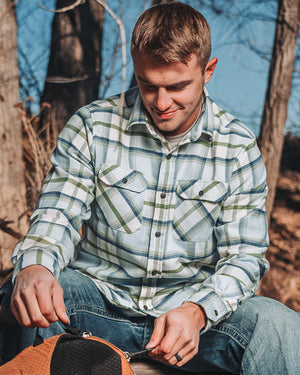
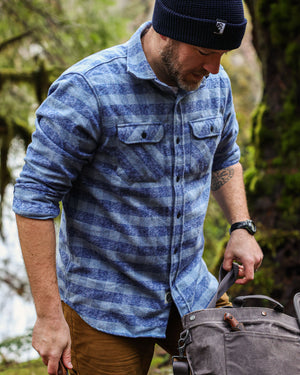
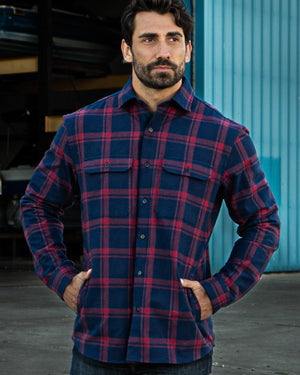
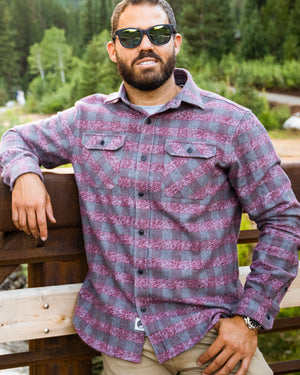
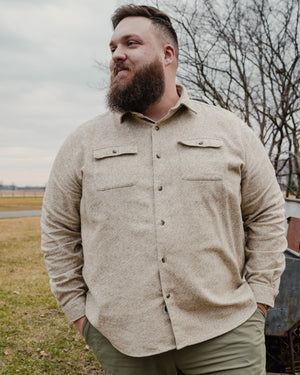
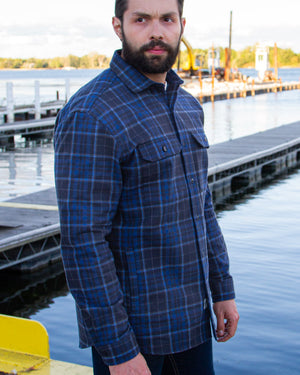
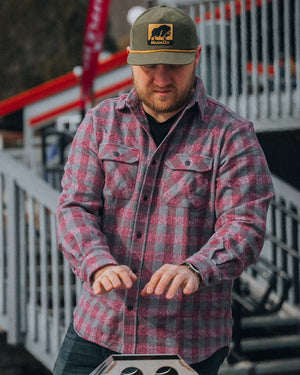

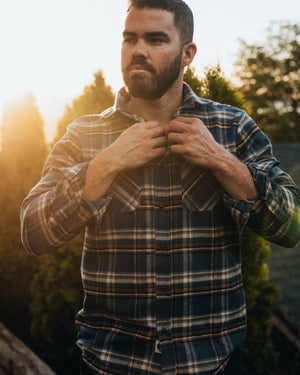
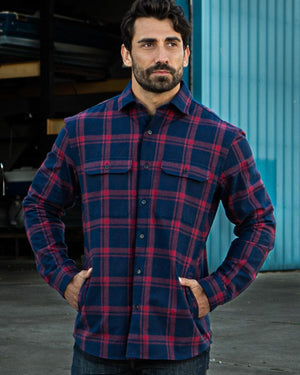
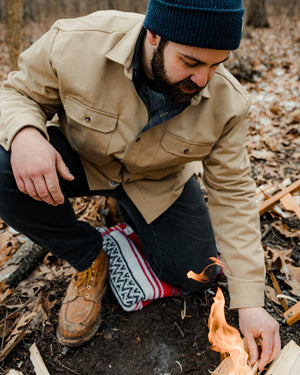
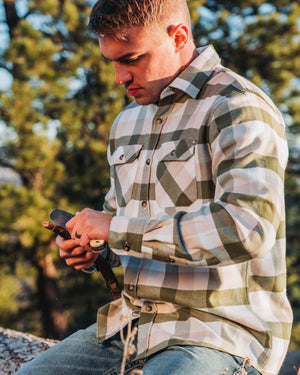
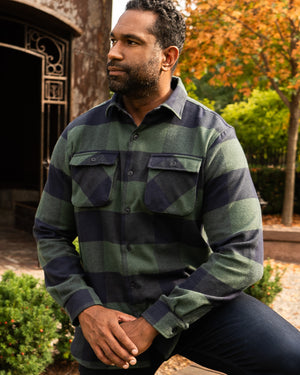
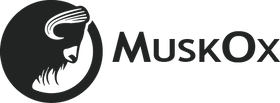

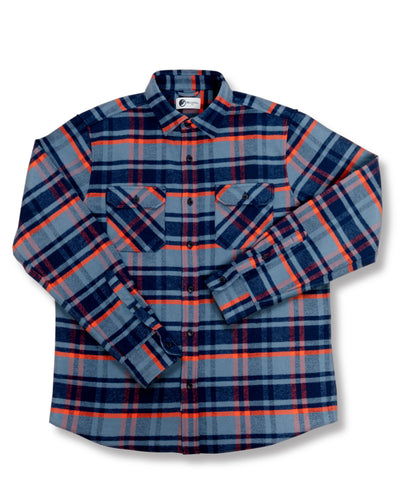

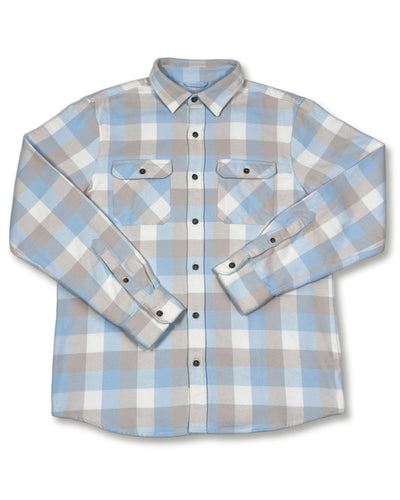
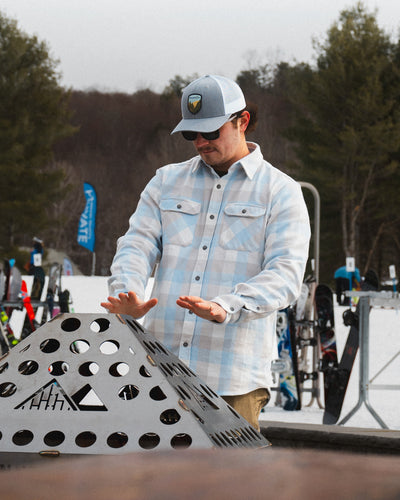
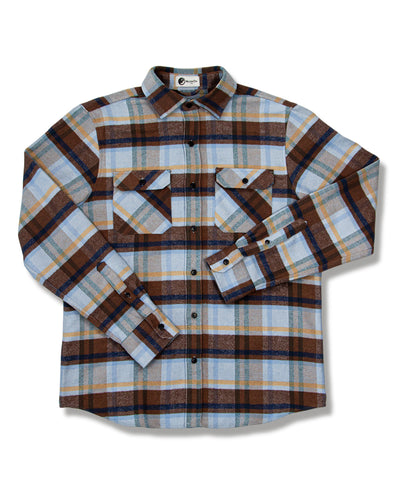
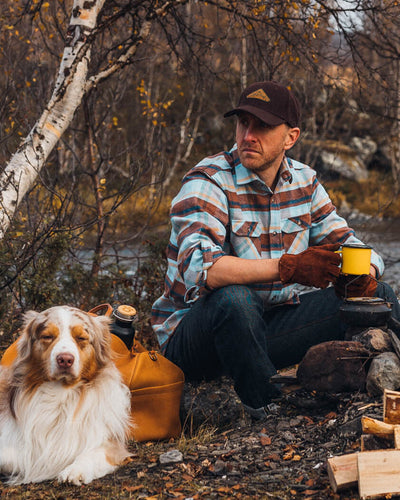
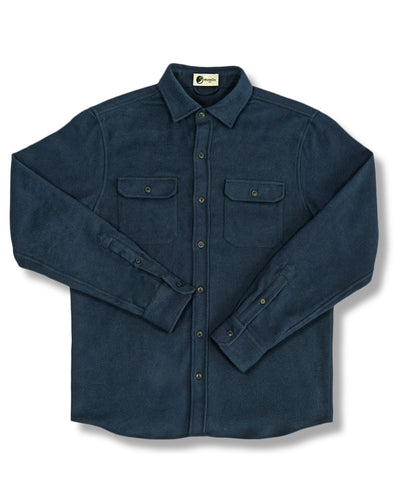
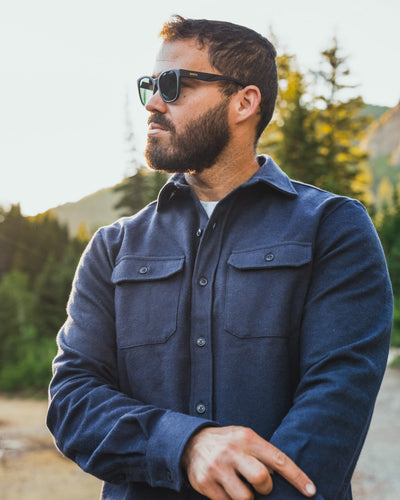



Leave a comment